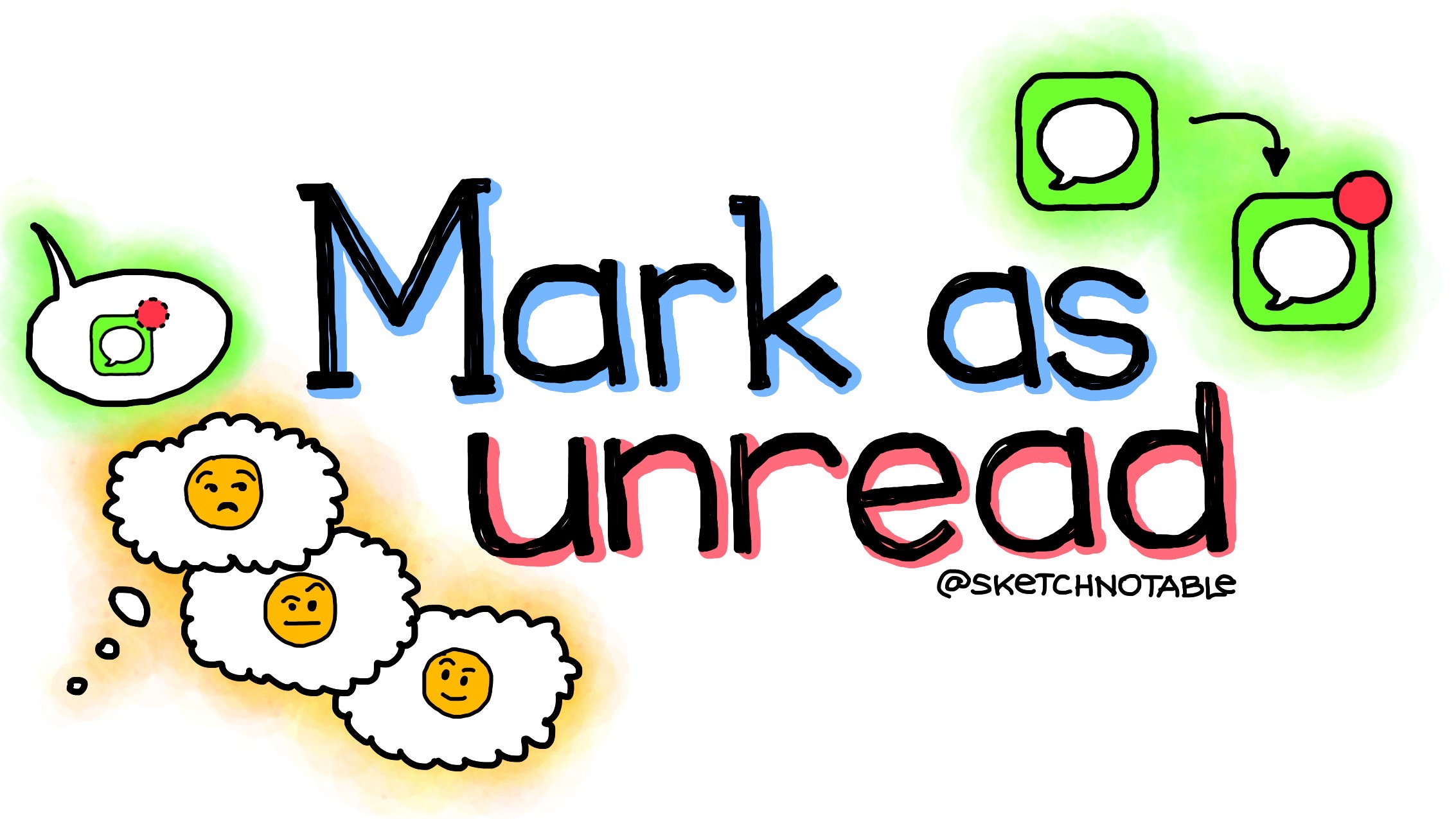Feature requests have been one of the most consistent experiences in my many years working in software. Everyone has an idea how your stuff should work, and many are keen to tell you. The way you understand and respond to those requests shows a lot about how you view others and yourself.
“Mark as unread” is a feature request I have heard often for the Apple Messages app. A friend of mine recently shared with me his experience discussing that request with someone on the Messages team. And this part week, I participated in a Twitter conversation about it.
These interactions drove me to think about the ways we respond to others and what drives our responses.
When my friend discussed with someone on the Messages team the request to add a feature to mark a message as unread, the answer was that it is not needed. The problem already has a solution. You just have to invoke Siri and ask to be reminded “about this.” When that works properly, a reminder is added to the Apple Reminders app with a magical link directly to the message being viewed.
There is a deeper issue with this response that I think matters more. But first I want to address the inadequacy of this solution. Even if it was solving the real problem, and I will contend it does not, it is an incomplete solution at best.
The first problem with the Siri-triggered reminder is the lack of discoverability. Most of my software career has involved user experience design, and one thing I have learned is that obvious is better than clever. And a solution isn’t a true solution if your users cannot find and benefit from it.
There is nothing in the Messages interface that would indicate that Siri could be invoked to reference a specific message. So how would a user even learn this is possible, let alone think to use it in the moment? This seems to be the epitome of a clever and not obvious feature.
The thing that kills me is that there is a clear and intuitive place to add affordances for this feature. When you touch and hold on a message, a menu appears with options such as Reply, Copy, and Translate. How hard would it be to add an option to this menu?
Apple could even add a standard system action that is used throughout iOS. Just add a Share button that presents the share sheet. Simple. Obvious. Effective.
Another huge advantage to adding a Share button to the content menu for a message is that it would address the second major issue with the Siri-invoked reminder: false lock-in. In the past, Apple could assume that everyone using Messages also had Reminders on that same device. Of course, only hubris said that everyone actually used Reminders. But since 2018, users can remove the Reminders app. So that arrogant assumption is no longer valid.
Ok, that’s enough.
Hopefully I have convinced you that the current approach could be drastically improved.
But that’s not the real issue.
I think the crux of the matter is misunderstanding the problem.
Any feature request is a proposed solution. Mediocre software teams respond directly to the feature. Good teams identify the problem that the feature solves. The best teams go a level deeper and figure out what why the problem matters.
For the “Mark as unread” feature, the Messages team addressed the issue by saying the problem is remembering to reply to someone. Their claim was that they already solve that problem, although I feel like I have shown their lack of success in that attempt.
My opinion is that the true problem to be solved is maintaining relationships.
That should be the purpose of the Messages app and team.
If it was, I think we would see different decisions, or at least hear different justifications. I think there would be less relying on other apps and teams to implement features for them.
The point of my sharing this situation and my thoughts on it is not to second guess the product management decisions of the Messages team. That is another one of those common experiences working in software all these years, and can be frustrating to be on the receiving end.
My purpose is instead to consider how we respond to what other people say to us.
There is a chance that the Messages team responded well to hearing this feature request. From what I have heard, it sounded like they instead responded with arrogance and dismissiveness. Whether they did or did not, we can take lessons from the situation.
When someone asks something of us, instead of assuming we know what they mean, or what is behind what they are saying, we need to be curious. First, make sure to be present and actually hear it in the first place. Then take the time to understand.
To me, one of the big lessons to be learned is to go deeper.
We need to not be satisfied with the first answer or our instinctual reaction. Ask questions. Challenge assumptions. Lose our arrogance and be willing to be wrong. We can always learn more.

